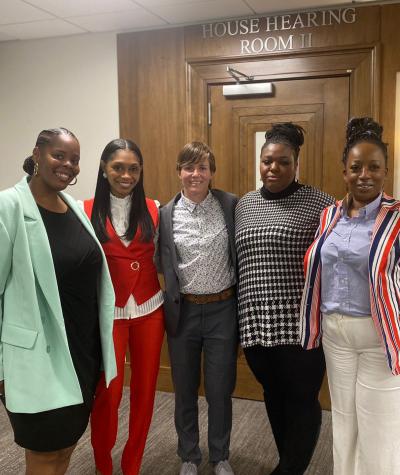Gicola Lane, Restore Your Vote advocate at Campaign Legal Center (CLC) and Dawn Herrington, executive director of Free Hearts, recently published an op-ed in The Tennessean highlighting how Pamela Moses’ sentence of six years in prison for trying to regain the freedom to vote underscores the need to reform Tennessee’s rights restoration process.
Tennessee has the most convoluted, harsh and poorly managed rights restoration process of any state in the country. Since 2016, less than 1% of post-sentence Tennesseans have gotten their voting rights back due to modern-day poll taxes and issues with obtaining a Certificate of Restoration (COR).
Tennessee is one of only a handful of states that conditions the right to vote on payment of legal debt and the only state that requires a person to be current on child support to restore their voting rights.
Moreover, even if a person is eligible to have their voting rights restored, Tennessee requires them to obtain a COR attesting to their eligibility. But the certificates are nothing but a bureaucratic barrier.
The certificate process lacks guardrails to ensure that eligible Tennesseans can obtain the documents and that ineligible people are not erroneously told they can vote – which is what happened in Pamela Moses’ case.
CLC has sued Tennessee on behalf of the Tennessee NAACP seeking a court order that would force the state to streamline the administration of CORs to ensure accuracy and equal treatment.
Because of these problems, many voters with past felony convictions who are or could be eligible to vote are unaware of their eligibility or encounter significant barriers to voting.
Tennessee has the second highest rate of disenfranchisement of any state in the nation as a result of these complex, confusing policies. Over 450,000 citizens — accounting for more than 9% of the voting age population — are denied the right to vote because of past felony convictions.
Tennessee also has among the highest rate of Black felony disenfranchisement in the country; over 21% of Tennessee’s Black voting age population is disenfranchised.
The resounding majority of Tennesseans want their friends, family and community members to be able to vote once they have served their time. According to a Secure Democracy poll, 73% said they would support a bill to restore voting eligibility for Tennesseans with past felony convictions.
People with felony convictions deserve to have the freedom to vote and the ability to fully and actively participate in our democracy.
CLC will continue to help voters in Tennessee and across the country regain the right to vote through our online resource RestoreYourVote.org, mounting legal challenges against policies that create additional burdens, encouraging federal agencies to assist jailed and formerly incarcerated voters and advocating for state-level legislation that would streamline the rights restoration process.
